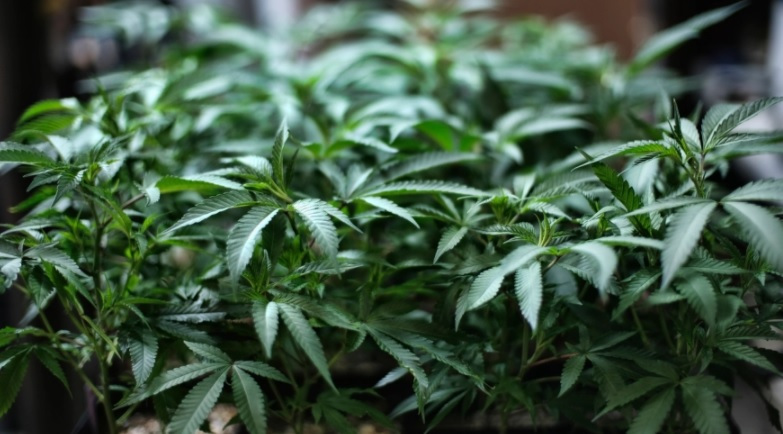
ALBANY, N.Y. (PIX11/AP)— After years of attempts, New York’s lawmakers voted Tuesday to legalize recreational marijuana for adults.
When Gov. Andrew Cuomo signs the bill into law — which he’s expected to do — New York will join more than a dozen other states that have legalized cannabis, including neighboring New Jersey. The state Senate and Assembly hashed out final details in a Tuesday debate. It passed the Senate with a party-line 40-23 vote and the Assembly with a 100 – 49 vote.
New Yorkers won’t be able to immediately purchase marijuana; the state still needs to set up rules around sales and a proposed cannabis board. Assembly Majority Leader Crystal Peoples-Stokes estimated Friday it could take 18 months to two years for sales to start.
Marijuana sales could bring the state, reeling from the monetary impacts of the coronavirus pandemic,about $350 million annually. New York would set a 9% sales tax on cannabis, plus an additional 4% tax split between the county and local government. It would also impose an additional tax based on the level of THC, the active ingredient in marijuana, ranging from 0.5 cents per milligram for flower to 3 cents per milligram for edibles.
Money from sales could also be used to help the communities disproportionately impacted by years of unequal police enforcement of marijuana laws, Sen. Liz Krueger, Senate sponsor of the bill and chair of the Senate’s finance committee, said.
“New York’s program will not just talk the talk on racial justice,” Kreuger said. “It will walk the walk: ending the racially disparate enforcement that was endemic to prohibition, automatically expunging the records of those who were caught up in the so-called ‘War on Drugs’ and channeling 40 percent of the revenue back into the most hard-hit communities.”
The bill would also:
- Eliminate penalties for possession of less than three ounces of cannabis, and automatically expunge records of people with past convictions for marijuana-related offenses that would no longer be criminalized.
- Set up loans, grants and incubator programs to encourage participation in the cannabis industry by people from minority communities, as well as small farmers, women and disabled veterans.
- Allow individual New Yorkers to grow up to three mature and three immature plants for personal consumption
- Let local governments opt out of retail sales.
Statement from Governor Andrew Cuomo
“Tonight, the New York State Legislature took the first step in a major leap forward for the Empire State by passing legislation to legalize adult-use cannabis. I thank Senate Majority Leader Andrea Stewart-Cousins, Assembly Speaker Carl Heastie, and the many legislators who worked tirelessly on this issue for securing passage of this historic legislation.
“For too long the prohibition of cannabis disproportionately targeted communities of color with harsh prison sentences and after years of hard work, this landmark legislation provides justice for long-marginalized communities, embraces a new industry that will grow the economy, and establishes substantial safety guards for the public.
“New York has a storied history of being the progressive capital of the nation, and this important legislation will once again carry on that legacy. I look forward to signing this legislation into law.”
— Gov. Andrew Cuomo
Statement from New York State Attorney General Letitia James
“The legalization of marijuana is a racial and criminal justice imperative, and today’s vote is a critical step towards a fairer and more just system. For too long, people of color have been disproportionately impacted by an outdated and shortsighted marijuana prohibition, and it’s past time we right this wrong. We must also engineer an economy that will provide a much-needed boost to communities devastated by the war on drugs and COVID-19, and I am hopeful this will help to achieve that for New Yorkers.”
— New York State Attorney General Letitia James
Statement from Assembly Member Harry Bronson
“For far too long, low-income and minority communities have been disproportionately affected by outdated drug laws, including the criminalization of marijuana. Today, we took a historic step toward righting this injustice.
“Legalization of adult marijuana seeks racial justice, promotes equitable small business economic growth and addresses health and safety issues. Recognizing the generational devastation caused by marijuana prohibition, this new law will invest in marginalized communities, automatically expunge prior convictions of low-level cannabis offenses, and encourage business equity. These measures will help to undo the harm done and right the injustice of the past.
“The law dedicates 40% of the state tax revenue to community reinvestment grants targeted to disadvantaged neighborhoods. An additional 40% will be allocated towards funding public schools. This new law will also automatically expunge past convictions for low-level cannabis offenses, helping repair some of the damage done by the War on Drugs and relieving many people of the stigma associated with a drug conviction.
“As we worked on this legislation, keeping our families out of harm’s way was a top priority, and we took extreme care to ensure safety measures are in place. While studies have found no correlation between marijuana legalization and an increase in traffic fatalities or violent crime rates[1], New Yorkers who drive under the influence will face similar penalties as existing DWI/DWAI offenses and a chemical test can be requested if an arresting officer has reason to believe someone is driving under its influence. Additionally, we included provisions for a controlled research study to develop new technology for roadside testing. The law also allocates 20% of the state tax revenue to fund drug treatment as well as an education and awareness campaign to help ensure people who choose to use marijuana, do so responsibly.
“This is an exciting day for New York as we take huge steps to repair the regressive policies of the past and make smart investments in a better and more equitable future.”
— Assembly Member Harry Bronson


